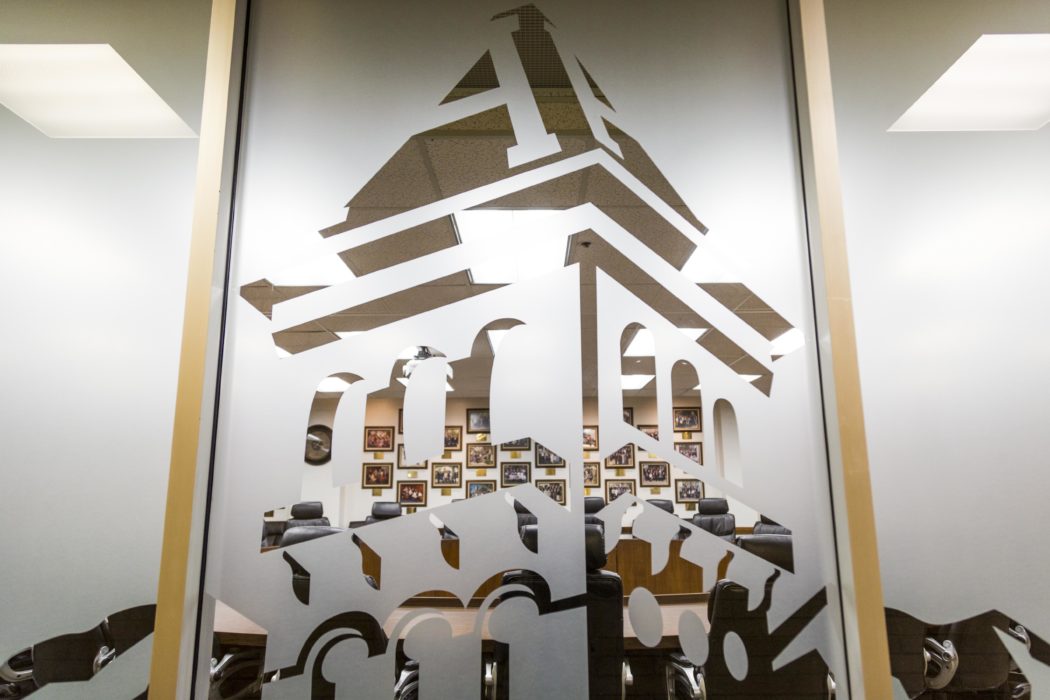Proposed USUSA bill fails
The two governing bodies of the Utah State University Student Association were at odds with each other in March — a relatively uncommon occurrence — on passing a bill to equalize the two groups’ voting power.
The bill, which aimed to give equal voting power to the Academic Senate and Executive Council, passed through the first body, but was voted down in the second.
Titled “Academic Senate and Executive Council Equity Resolution,” the bill proposed giving the USUSA Academic Senate power to vote on legislation, changes to the USUSA constitution, appointments of new officers made by the USUSA president and budgetary changes.
Currently, the Academic Senate holds power to “review and comment
on budgets, legislation, and other items before they are passed to effectively create equity between the two bodies,” according to the USUSA constitution. This bill, however, aimed to formalize this process by giving Academic Senate actual voting power, meaning the group would have a formal say on proposed legislation.
The Academic Senate, which includes one student from each USU college and one graduate representative, voted unanimously to pass the bill as a first reading, meaning it can move to the next step of the voting process. Graduate Studies Senator Anuj Khasgiwala, who sits on both the Academic Senate and Executive Council, chose to abstain from voting.
Though the Academic Senate met the bill with support, the Executive Council shared different thoughts.
Some Executive Council members took issue with the fact that members of that body are voted in by the entire student population, whereas members of the Academic Senate are only chosen within their specific colleges.
“I don’t agree with Academic Senate being a voting body that makes changes to the entire student body because the student body doesn’t vote in those officers,” said Jake Ambuehl, athletics and campus recreation vice president. “The entire student body doesn’t vote for those positions. Wherein the EC positions are. We represent all our constituents.”
Other vice presidents, however, withheld their support due to the current lack of communication between both bodies.
“Not once has anyone from Academic Senate this year shown up for a second reading of a bill or resolution that has happened in Executive Council,” said diversity and clubs VP Chelsea Olson. “If voices of Academic Senate wanted to be represented, they would either be there,” she said. Olson added that Blake Harms, USUSA executive VP who sits on both bodies, should be able to better represent voices of the academic senate.

Blake Harms, the Executive Vice President for USUSA.
Though USUSA has only voted on one university-wide legislative decision this academic year, Olson furthered her thoughts by stating that senators who proposed changes in their job charters should have brought them to the Executive Council, which led the group to a discussion about the busy day-to-day lives of student leaders and who, if anyone, should take responsibility for communication.
“The system isn’t broken,” said student advocate VP Bridget Brown. “We’re busy people, but maybe this is the way of making the burden of every officer smaller while keeping us responsible and accountable.”
Though the two bodies hold separate meetings, Academic Senate on Mondays and Executive Council on Tuesdays, they hold the same purpose of being liaisons between the student body and the university administration. However, the Academic Senate only votes on legislative issues relating to academics, while the Executive Council votes on wider issues affecting the student body.
@Alison__Berg


These comments are only from people who are on EC. I wonder what the people who are actually on AS think…